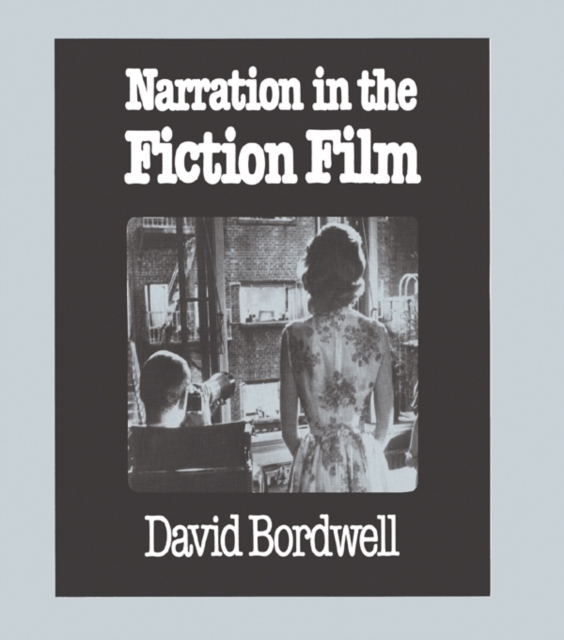
Narration in the Fiction Film Paperback / softback
by David Bordwell
Paperback / softback
Description
Most films tell tales, but what does that involve? How do motion pictures tease us into building what we all agree to call stories?
In this study, David Bordwell offers the first comprehensive account of how movies use fundamental principles of narrative representation, unique features of the film medium, and diverse storytelling patterns to construct their fictional narratives.
The result is a pioneering, far reaching work which will change the way we perceive narrative film and which every serious film scholar, student or fan will welcome.
Bordwell begins his study with an overview of general approaches to narration.
Drawing on the insights of certain theories- in particular Russian formalist aesthetic theory and cognitive psychology for its notion of how the viewer contributes to the process of narrative comprehension- he formulates a new concept of narration that is uniquely applicable to fictional cinema.
Films, Bordwell argues, are patterned systems that prompt spectators versed in narrative conventions to construct a story.
Since cinema is a medium involving both time and place, he considers how these factors affect the concrete process of film narration and help shape the spectators’ story comprehension. If the conventions of story making very from medium to medium, they also vary historically.
Dominant modes of film narration, Bordwell suggests have furnished tacit conventions for film makers and audiences at different periods.
Characterising four of these modes as classical Hollywood cinema, the European ‘art cinema’, the Soviet historical materialist film and parametric narration, he examines the history and specific strategies of each. Ultimately, however, Bordwell offers more than abstract theory.
Demonstrating how his concept of narration can aid in the critical analysis of particular films and film makers, he provides fresh discussions of such movies as ‘His Girl Friday’, ‘The Big Sleep’, ‘Rear Window’ and ‘La Guerre est Finie’.
In director Jean-Luc Goddard, Bordwell finds particularly telling reference point; the Frenchman's films derive their particular difficulty and charm, he argued, by parodying, mixing and subverting those narrative conventions which audiences have learnt to trust.
Information
-
Only a few left - usually despatched within 24 hours
- Format:Paperback / softback
- Pages:384 pages
- Publisher:Taylor & Francis Ltd
- Publication Date:05/02/1987
- Category:
- ISBN:9780415018777
Other Formats
- Hardback from £175.00
Information
-
Only a few left - usually despatched within 24 hours
- Format:Paperback / softback
- Pages:384 pages
- Publisher:Taylor & Francis Ltd
- Publication Date:05/02/1987
- Category:
- ISBN:9780415018777






